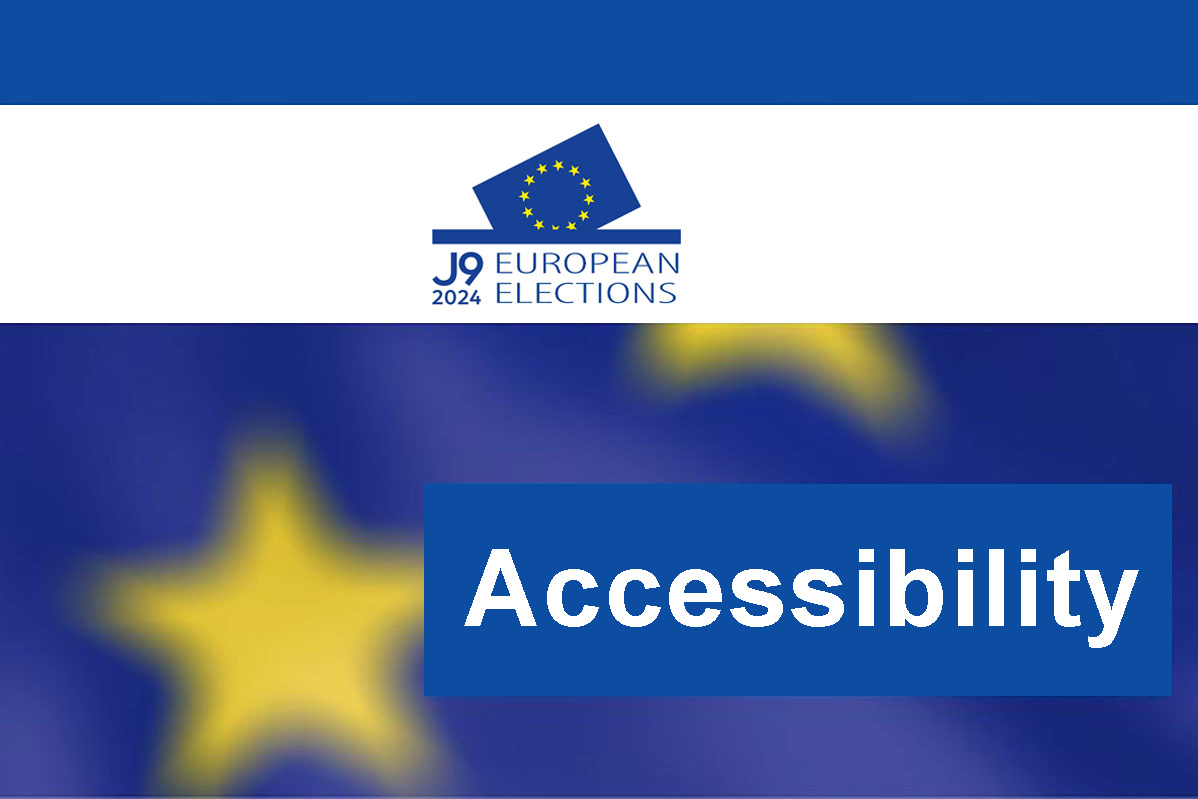The Ministry of Home Affairs extends measures to facilitate accessible voting for people with disabilities
News - 2024.5.20
 Accessible voting for people with disabilities in the European elections (Pool Moncloa)
Accessible voting for people with disabilities in the European elections (Pool Moncloa)
This includes people with cognitive disabilities (cerebral palsy, autism, Down's syndrome, etc.), thereby meeting the demands of these groups who have been fighting for years for the full participation of these citizens in political life.
Among other measures, it is worth highlighting the extension of the signalling system to the capitals of all Autonomous Communities, which was tested at polling stations in Madrid during the 2023 election and which has gradually been replicated in other elections. This signage system provides clear and simple messages that help citizens with cognitive impairments, mainly the elderly, people with intellectual disabilities or reading and writing difficulties, to find their way around the polling stations.
This is a series of pictograms that graphically indicate the location of the polling station, the booths, the opening hours of the polling stations and the main steps for voting, among other things.
The posters have been designed according to the ISO 22727:2007 standard on the creation and design of public information symbols and their comprehensibility has been evaluated according to the UNE-ISO 9186 quality standard and with the participation of 158 people with intellectual disabilities. The signalling system includes an easy-to-read installation guide.
Government delegations and city councils will responsible for coordinating the installation of 44,133 posters in polling stations in the capitals of the autonomous communities. This signage will be visible in Barcelona, Las Palmas de Gran Canaria, Logroño, Madrid, Mérida, Murcia, Oviedo, Palma, Pamplona, Santa Cruz de Tenerife, Santander, Santiago de Compostela, Seville, Toledo, Valencia, Valladolid, Vitoria-Gasteiz, Zaragoza, Ceuta and Melilla.
Support for polling station officials with disabilities
People with disabilities can also be appointed as polling station officials, and to ensure their full participation in the electoral process, the administration provides them with a series of support tools.
On one hand, people with cognitive difficulties will be able to access table manuals adapted for easy reading and available in the five co-official languages (Spanish, Catalan, Valencian, Galician and Basque). In addition, auditors and proxies are also given recommendations to ensure full accessibility for voters with this type of disability, as well as how to interact with them in the most respectful way possible.
On the other hand, deaf and hearing impaired people will have free sign language interpretation and a magnetic induction loop.
Meanwhile, blind or deaf-blind people, both incumbents and substitutes, shall have the support determined by the Zonal Electoral Board.
Accessible Kit
Visually impaired people have the accessible voting kit, which includes ballots, envelopes and complementary documentation in Braille, allowing them to select their voting option with complete autonomy. These voters must request in advance their wish to have this support tool.
Non official translation





